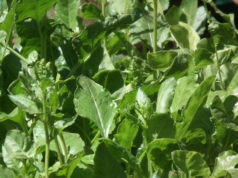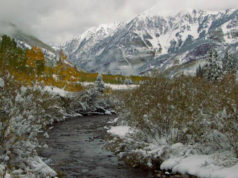
BIKE COMMUTERS RISK HIGHER EXPOSURE TO POLLUTANTS, STUDY FINDS
A recent report from researchers at Colorado State University (CSU) could mean bad news for bicycle commuters. The first installment of the Fort Collins Commuter Study suggests that bike commuters have higher rates of exposure to air pollution, not only inhaling more pollutants than car commuters but also breathing pollutants of a different variety.
The inquiry, which is the first in a set of a comprehensive analyses on commuting, studied 45 commuters through GPS tracking and air pollutant measurements as they took turns biking and driving between work and home in the city of Fort Collins. Car commuters were found to have higher exposure to carbon monoxide, as well as other gaseous pollutants, whereas bike commuters measured higher exposure to pollutants such as “black carbon,” a compound formed by car engines.
According to a CSU press release, the study was motivated out of a desire to provide better information to commuters and let people make their own decisions about how to get to and from work. “We wanted to ask practical questions that would empower people to make choices to reduce their own exposure,” said John Volckens, an associate professor mechanical engineering at CSU, in a press release.
Additionally, researchers found that taking a different route can sometimes help bike commuters reduce their exposure, but that the longer time spent on the road can often offset some of those gains.
“Our results can be put in a larger context of what others have already observed,” said Volckens in the CSU press release. “That choosing different commute routes can have a significant effect on one’s exposure to pollution – yet sometimes, those choices are limited.”
— Grant Stringer
LANDMARK COURT CASE ESTABLISHES CONSTITUTIONAL OBLIGATION TO PROTECT NATURAL RESOURCES
Environmentalists have come away with a major victory in Washington State with a county court ruling that has established the protection of natural resources as a constitutional right of Washington citizens. The ruling from King County Superior Court Judge Hollis R. Hill has ended a class-action petition from eight Washington youths who requested that the Washington Department of Ecology write a constitutional rule protecting the atmosphere for the future.
With
the ruling Judge Hill established that the state has a “mandatory duty”
to “preserve, protect and enhance the air quality for the current and
future generations,” siding with the youth petitioners’ argument that
Washington law failed to adequately protect the environment at current
rates of pollutant emissions.
“This
ruling means that what the Department of Ecology does going forward in
its rulemaking has to protect us, the kids of Washington,” said
13-year-old petitioner Gabriel Mandell, in a press release from Our
Children’s Trust, who sponsored the lawsuit. “Now they can’t decide to
protect short-term economic fears… because we have a constitutional and
public trust rights to a stable climate!” Under Judge Hill’s ruling, the
Washington Department of Ecology will be held accountable to implement
adequate regulations under the Clean Air Rule to ensure that atmospheric
pollutants are kept to a healthy minimum.
Similar
cases are underway in Colorado, as well as in several states across the
U.S., as plaintiffs seek to establish constitutional mandates for state
protection of citizen’s access to healthy climates.
— Grant Stringer














